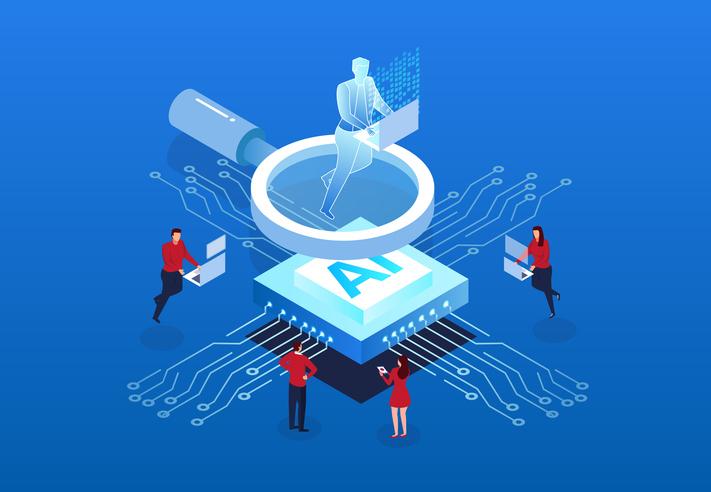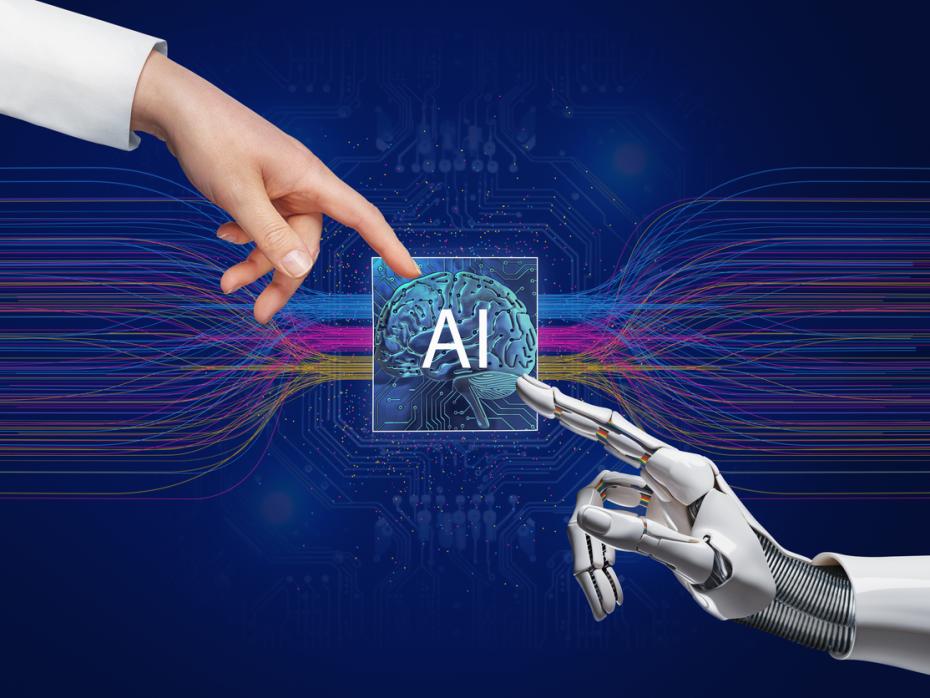Over the past three years, a large number of AI tools have been developed specifically to support research. These tools can enhance virtually every stage of the research process, offering capabilities that extend from initial conceptualisation through to final publication. Understanding these applications helps researchers strategically incorporate AI tools where they can provide maximum benefit and accelerate the pace of research.
- Guard rails to mitigate ethical concerns for AI use
- Ensure AI serves institutions, not the other way around
- Spotlight guide: GenAI as a research assistant
Breaking down the conventional research process, contributions by AI tools can be categorised in relation to the following phases:
Early research phase
At this stage, the researcher typically reviews the literature, reads articles, formulates ideas and explores research areas and questions. AI tools support:
- Idea generation through trend analysis
- Search, retrieval and linking of articles
- Identification of research gaps
- Formulation of research questions
- Development of testable hypotheses
- Exploration of methodological approaches
Literature review phase
Researchers need to summarise the evolution and state of the art of the chosen research areas, covering seminal work and illustrating the significance of the research. AI tools support:
- Summarising of articles
- Answering questions posed by the researcher on a collection of articles
- Identification of seminal works with justification for their inclusion
- Analysis of citation networks
- Identification of emerging research trends
Data analysis phase
Researchers derive findings and observations by analysing collected data to generate summaries, discover trends or patterns, validate hypotheses and reveal insights or interesting information. In this phase, AI tools support:
- Data cleansing and error correction
- Data consolidation and rearrangement
- Pattern identification in large datasets
- Generation of summaries, trends, explanations and insights
- Generation of visualisations in a wide variety of presentation protocols
- Interpretation of complex results with explanations and substantiations
- Comparative analysis across studies
- Articulation of a dataset with data discussed/presented in a third-party article
Manuscript phase
Researchers prepare their research output for dissemination, which typically includes publications, presentations and recordings in various media. AI tools support:
- Content drafting and structuring
- Language refinement and editing
- Citation formatting and management
- Journal guidelines compliance, including with regard to referencing format and writing style
- Compilation of presentations and videos
- Preparation of cover letters and other correspondence
Beyond these core applications, AI tools are increasingly contributing to specialised research tasks, such as qualitative data analysis, experimental design optimisation, in-depth citation analysis and tracking, documentation preparation and peer review support.
The versatility of contemporary AI systems allows researchers to customise applications to their specific disciplinary requirements and methodological approaches.
The effectiveness of AI in these contexts varies based on the sophistication of the tools employed, the clarity of instructions provided and the researcher’s ability to critically evaluate AI-generated outputs. As with any research tools, AI applications require appropriate validation and verification to maintain scientific integrity.
Since the emergence of these tools, the market landscape continues to evolve rapidly, with free general-purpose tools increasingly incorporating features previously exclusive to specialised research applications. This has prompted many specialised tool providers to shift towards premium subscription models to maintain viability.
Appropriate use of AI tools can yield the following benefits for researchers:
Accelerated research initiation: The researcher can understand the landscape of the topic quickly, when AI can locate and distil relevant articles core to the research.
Enhanced ideation: Nearly all AI tools operate interactively. Through an iterative approach, researchers gain valuable insights about the intended research and are alerted to ideas and information that might otherwise remain undiscovered.
Comprehensive literature coverage: Compared with accessing university library databases, AI tools often access alternative or additional databases and use alternative search algorithms to locate articles. Tools like Semantic Scholar (207 million articles), Scispace (270 million), and Consensus (>200 million) now rival traditional academic databases in terms of raw numbers, although we should continue to question AI’s depth of coverage in specialised fields.
Referencing efficiency: AI tools can automate the compilation and validation of citations, ranging from in-text referencing to reference lists, ensuring adherence to journal and publisher requirements.
Boosted confidence: Especially for new researchers, outputs and recommendations from AI tools often reinforce and extend the findings and understanding gained using traditional methods.
Despite these advantages, the use of AI tools must be balanced against their potential limitations, including algorithmic biases, data privacy concerns, search comprehensiveness, information accuracy and skill degradation. It’s important to critically evaluate AI-generated content. The greatest benefits emerge when researchers maintain appropriate oversight and use AI to complement, rather than replace, human judgement.
The market landscape for AI tools is highly volatile, with frequent consolidation of tools and their providers. Future-proof your work and help to safeguard against the downsides of constant change. This can include frequent saving of work conducted (including data, prompts and responses), regular backups, export to other systems and, most importantly, developing a mindset to deal with constant and unexpected change. For example, how to swiftly switch to using another tool with the minimum effort and accepting the fact that nothing is perpetual.
Eric Tsui is a senior project fellow at the Educational Development Centre and Educational Research Centre at the Hong Kong Polytechnic University.
If you would like advice and insight from academics and university staff delivered direct to your inbox each week, sign up for the Campus newsletter.




comment